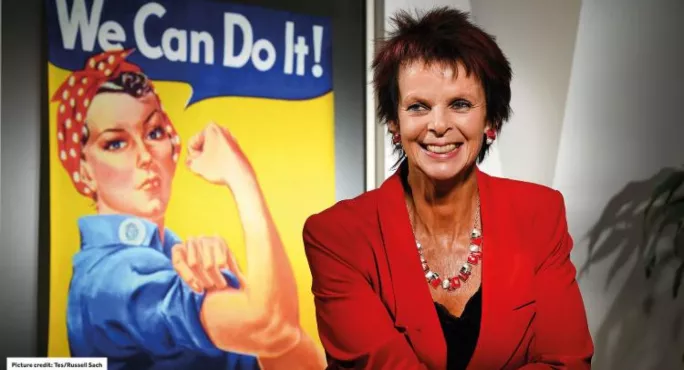We need to help those hardest hit back into training

As we slowly emerge from the winter lockdown into a hopeful new spring, we all acknowledge that the past year has been disruptive to everyone and devastating for many. We do not, as yet, know the full extent of the toll on people’s mental health, physical health and wellbeing. Home schooling, working from home, access to outside space and financial resources are the tip of the iceberg when we consider the challenges that many have faced. And there is no doubt that the most negative economic impacts of repeated lockdowns have not been spread equally - that those already at a disadvantage or in a position of vulnerability have been more likely to suffer.
We know that there is rising unemployment, with research from the Learning and Work Institute showing that this year there could be between 1 and 1.6 million people out of work for 12 months or more (the highest figure since the 1980s), with drastic implications for families and whole communities across the UK. There is a wealth of evidence out there to highlight that the economic shock has deepened existing inequalities and created new ones.
A recent Bank of England report showed that the economic impact of Covid-19 has been very uneven across sectors, leading to unequal effects. This has exacerbated existing inequalities in the labour market, as the sectors most affected tend to have higher proportions of low-paid workers, female workers, and employ more people from minority ethnic backgrounds. Young people have also been disproportionately affected with the number of people aged 18-24 claiming Universal Credit or Jobseeker’s Allowance doubling over the lockdown period. Even before Covid-19, the proportion of young people not in education, employment or training was rising.
Boris Johnson: FE and adult education laws ‘are rocket fuel’
Andreas Schleicher: Lifelong learning transforms lives
Background: Huge rise in young people classed as Neet
Access to learning and skills has powerful potential to take on some of these adverse impacts. Those of us in the sector all know, and see every day, that learning has the power to unlock potential and change lives.
Covid: Why adult education and training are vital for recovery
I have heard countless stories over the years from young and older people who have turned their lives around when given the chance to learn and show what skills they can offer. From someone finishing their degree apprenticeship who had no qualifications on leaving college, to an ex-offender who rose to a senior position in a construction company, to a woman with teenage children who built her skills from level 2 to a degree in social care. What they all needed was a flexible approach to learning towards relevant qualifications that helped them get a job, build a career and turn around their own life and the lives of their families.
I know, and have experienced first-hand, that the skills and post-16 education sector has a unique and important role to play in our national recovery from the pandemic, and in addressing some of those widening inequalities in our society. I also know that it is vital that we give those people most impacted by the pandemic the right access to the skills they need to re-enter the workplace. We need to make sure they have the opportunity they deserve to thrive and to prevent ever-deepening and longer-term scars.
At this moment, after a year of turmoil and disruption, we need a new focus on what the biggest challenges are in this new landscape and how to tackle them.
I feel extremely honoured to be chair of a new project, launched today by Pearson, to look at exactly this. A panel of 12 extraordinary experts from across education, politics and employment will hold five evidence sessions with key witnesses from this month and into the autumn. A final report will be published in November, looking at how widening inequalities in the Covid period have impacted access to learning and the labour market. The report will also set out a roadmap for addressing this.
Now is the time for the sector to look at the steps we need to take to help those hardest hit get back into employment, education or training. It will be important for there to be choice and flexibility. The relevance of education pathways, such as Btec, could not be more important in supporting this work as we emerge from Covid and mitigate the impact of the widening inequalities gap. Without the right support in place, individuals cannot take full advantage of the work and learning opportunities they need to help them to progress and succeed.
If we want to make a difference to those most impacted by the pandemic, the time to act is now.
Anne Milton is chair of Pearson’s ”Tackling widening inequalities gap caused by Covid-19” forum, which launches today. It will investigate the role of education, learning and skills.
She was minister of state for education from 2017 to 2019 and minister for women from 2017 to 2019
Register with Tes and you can read two free articles every month plus you'll have access to our range of award-winning newsletters.
Keep reading with our special offer!
You’ve reached your limit of free articles this month.
- Unlimited access to all Tes magazine content
- Save your favourite articles and gift them to your colleagues
- Exclusive subscriber-only stories
- Over 200,000 archived articles
- Unlimited access to all Tes magazine content
- Save your favourite articles and gift them to your colleagues
- Exclusive subscriber-only stories
- Over 200,000 archived articles